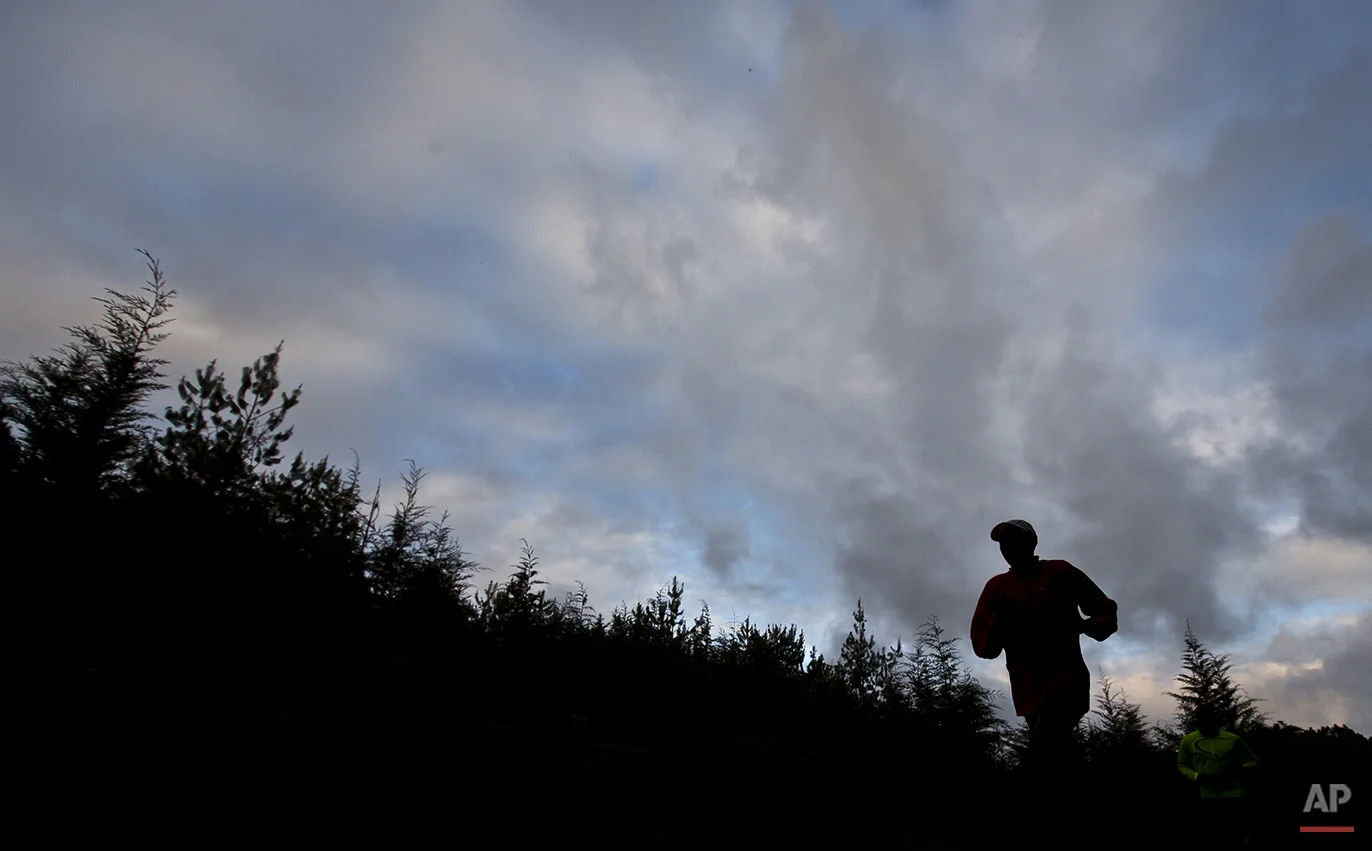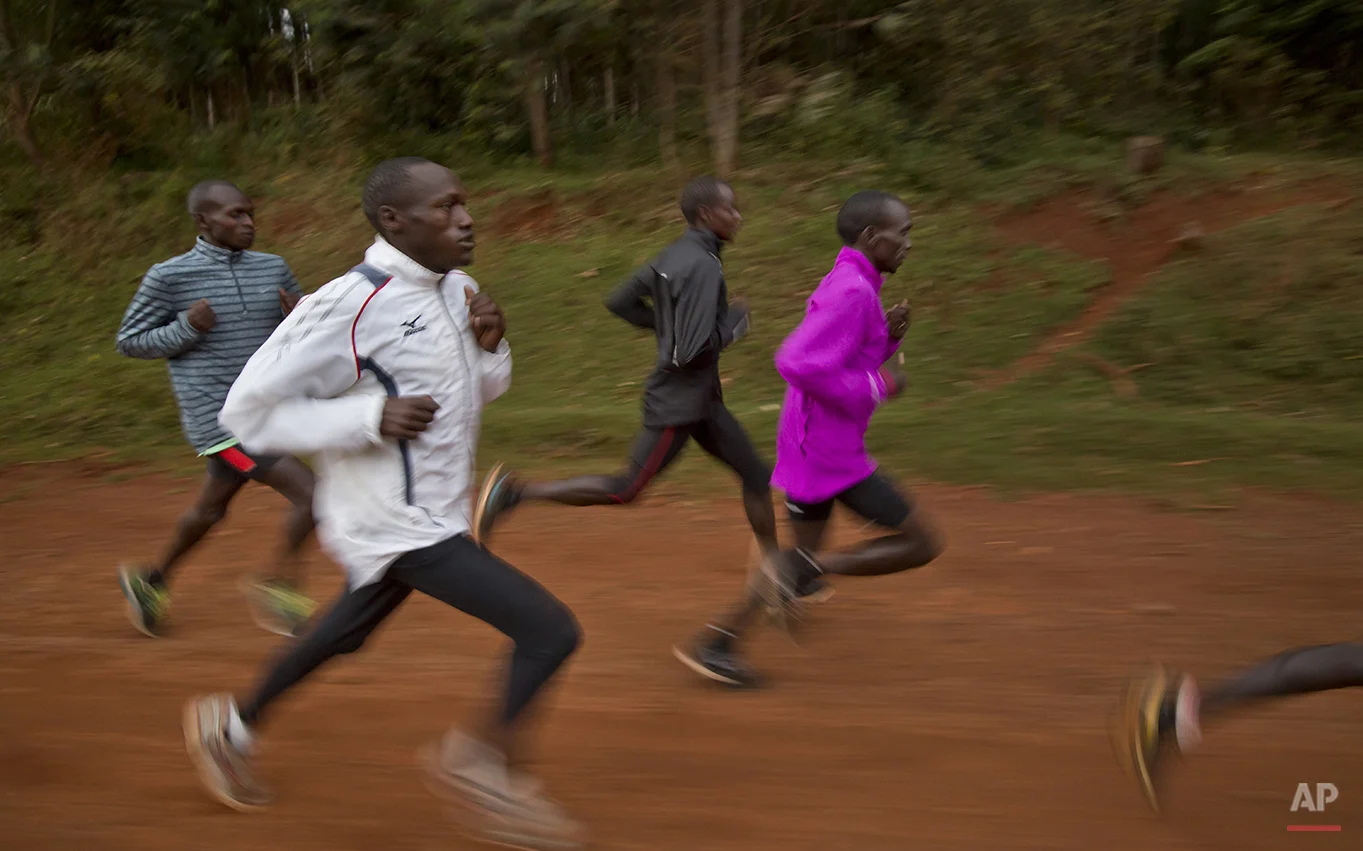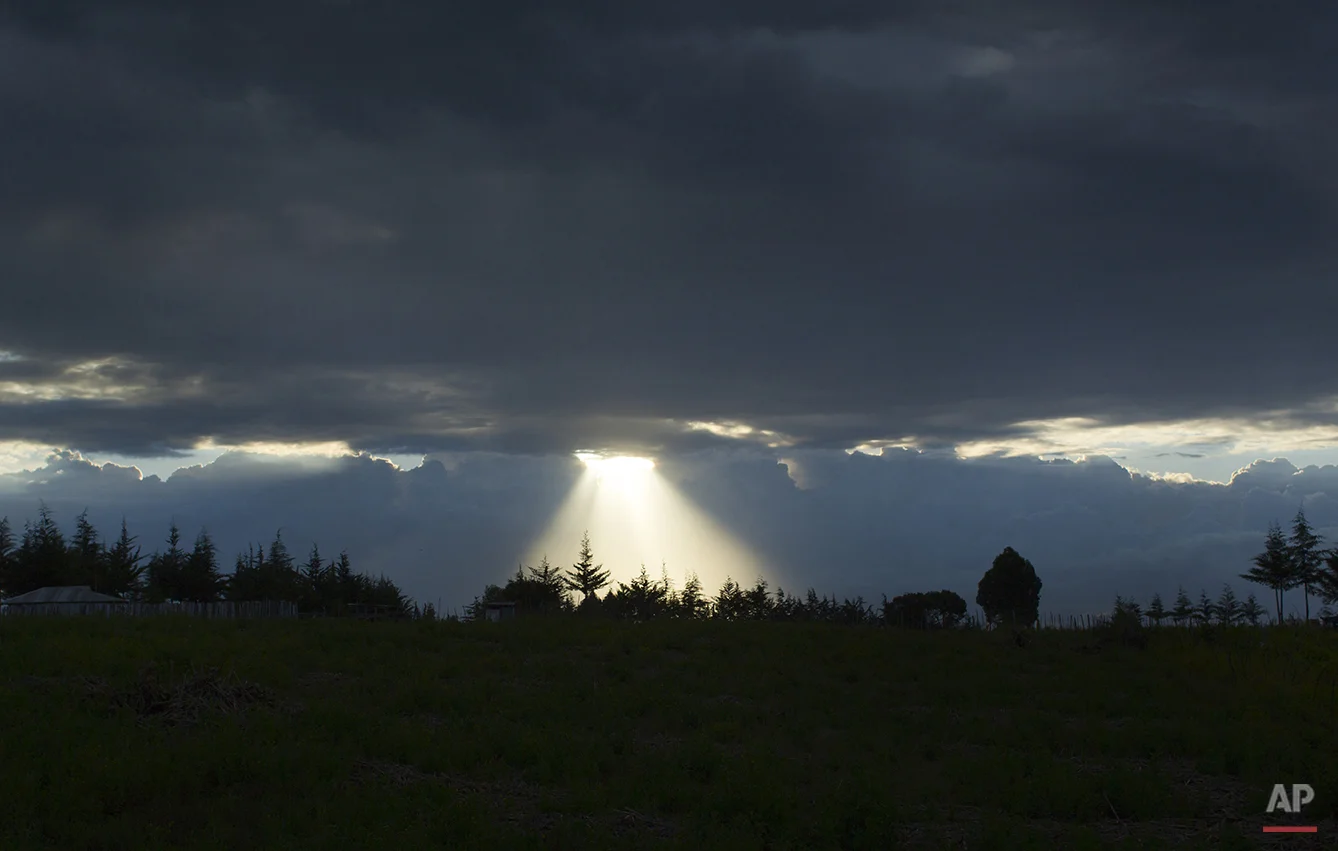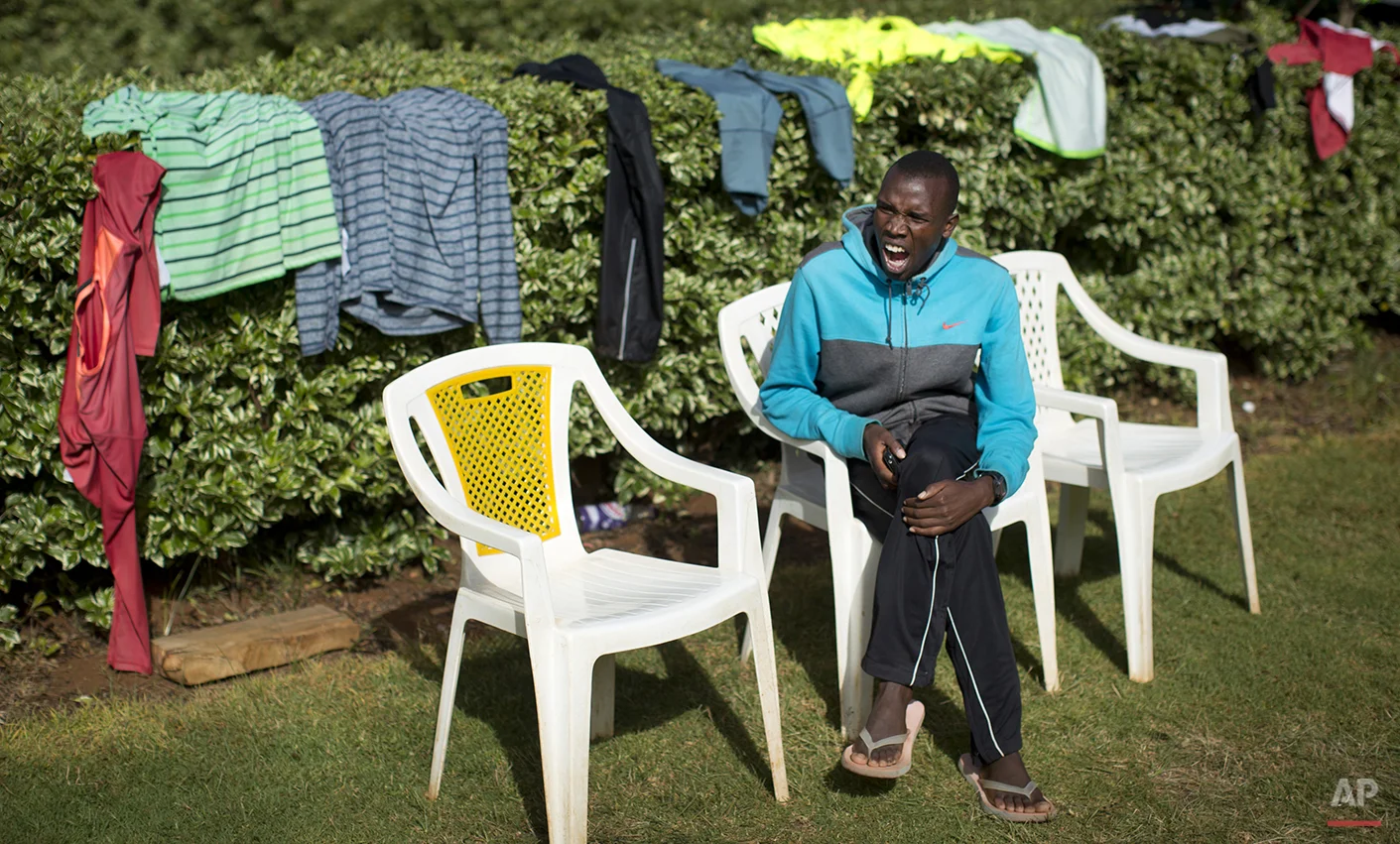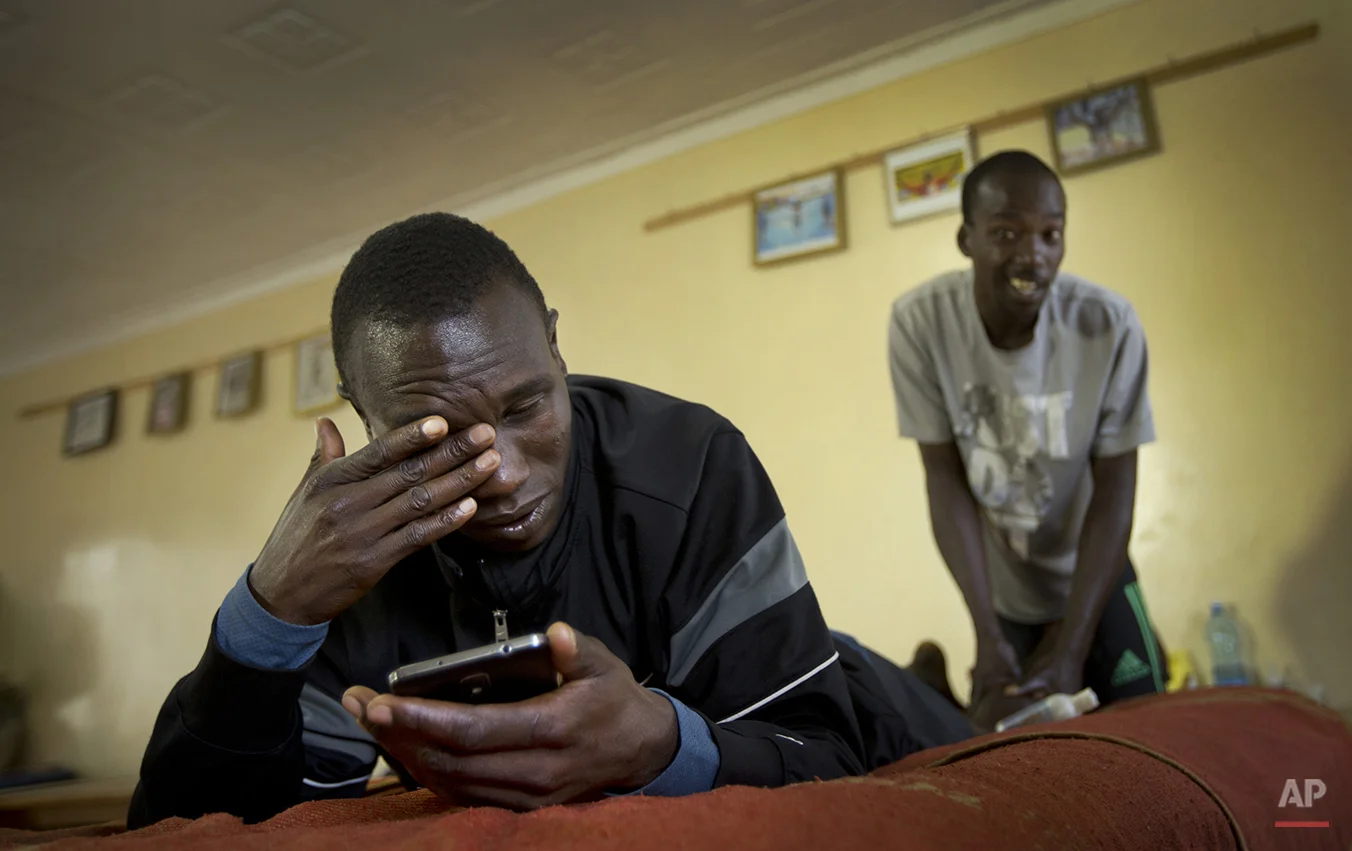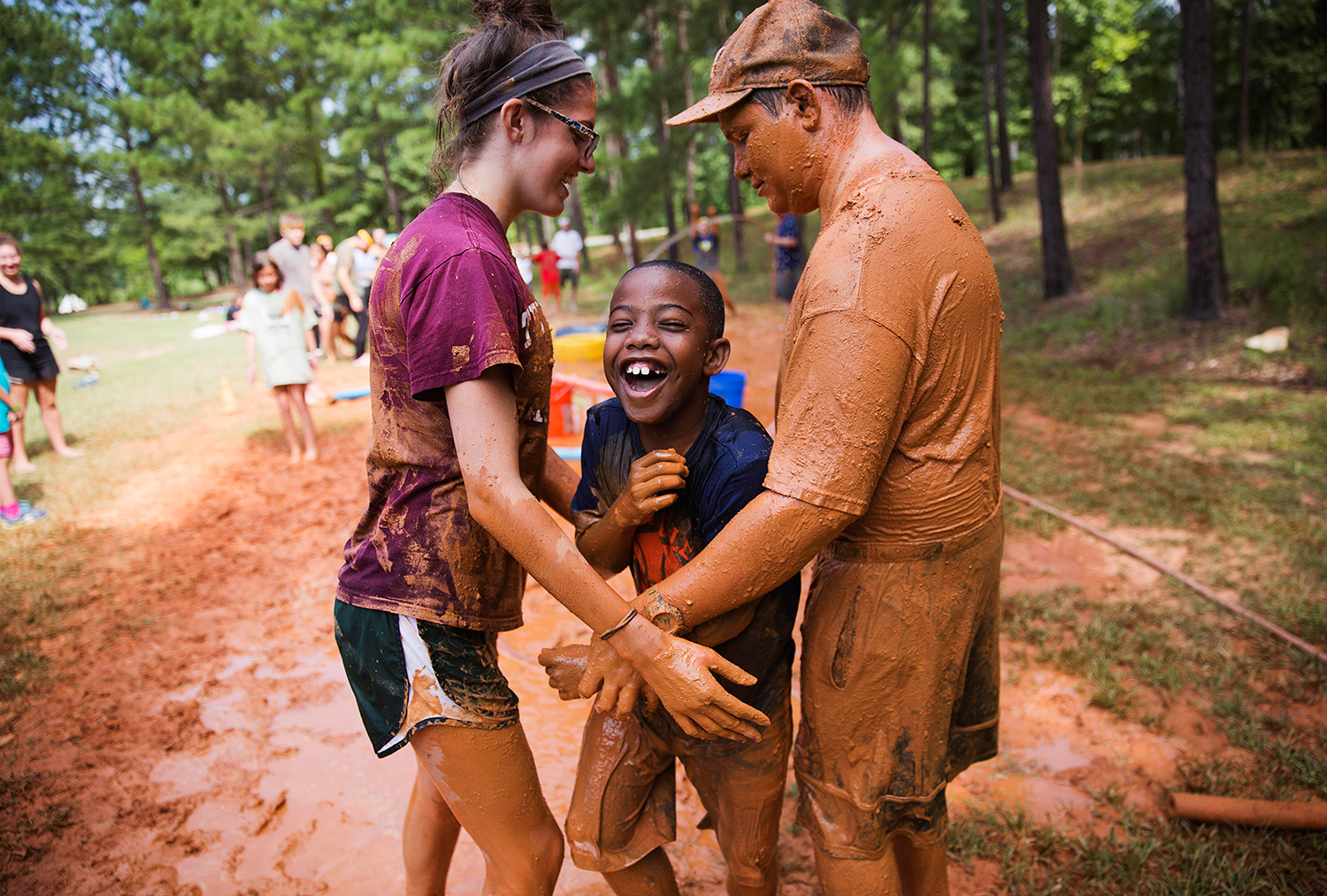Stars live monkishly at Kenyan running camp
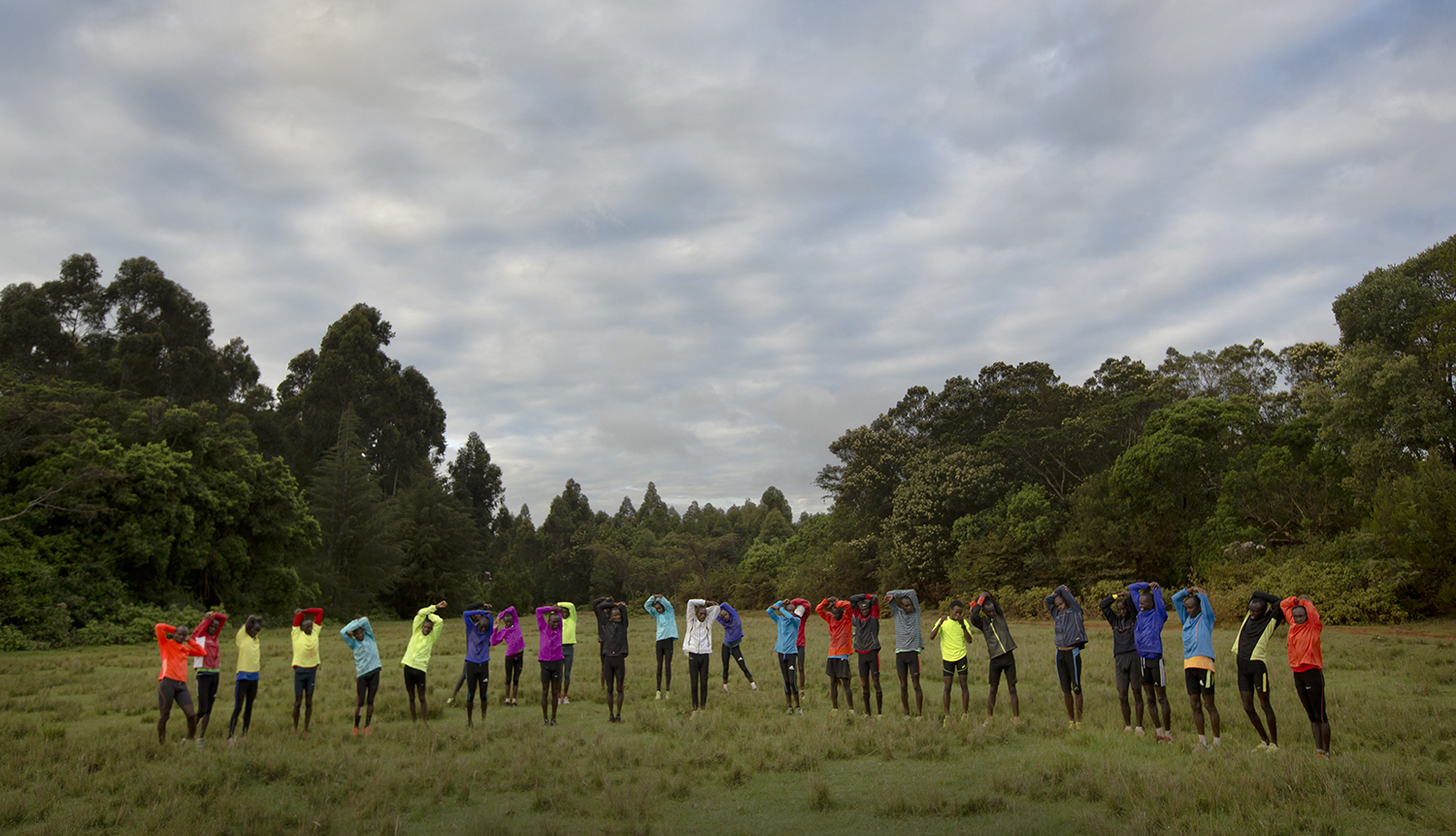
The hand-written roster — misspelled "rosta" — tells the runners when it's their turn for communal chores. Stephen Kiprotich's name is on it. So is Eliud Kipchoge's.
At the Olympic Games, world championships and the biggest marathons, both men are stars. But in the high-altitude training camp in western Kenya where they live like monks, they muck out shared toilets and do the washing up just like everyone else.
Kiprotich and Kipchoge are convinced their no-frills lifestyle is vital for their success. With their wealth, they could cover themselves with bling. Instead, they draw washing water from an outdoor well, drink milk from cows that graze the surrounding fields and share cramped bedrooms with other athletes.
See these photos on APImages.com
On the wall above Kipchoge's bed, the Olympic 5,000-meter silver medalist in 2008 and bronze medalist in 2004 has hung a nugget of wisdom from Brazilian author Paulo Coelho — "If you want to be successful, you must respect one rule: Never lie to yourself."
The winner of the London, Berlin and Chicago marathons is both philosophical and frustrated about the doping crisis corroding the hard-earned reputation of Kenyan running, with 38 athletes banned since the East African nation won 11 medals at the 2012 Games in London.
Kipchoge blames the short-sighted pursuit of money.
"People forget that money cannot be harvested," he says. "If you want to harvest the money, you need to plant the seeds. And what are the seeds? The seeds are hard training."
Ochre-red dust ferrets itself into the smile-lines on his face and clings to his eyelashes and hairs on his legs during a punishing training run through the forest that he and dozens of other athletes from separate training camps meet up for before dawn.
By training together, the runners spur each other on, Kipchoge says.
"I help them, they help me," he says. "This is mutual interest."
The jangle of a bicycle bell screwed to the wall in the dormitory corridor signals the 5 a.m. start of the day at the Global Sports camp that Kiprotich and Kipchoge share with about a dozen other runners from Kenya and abroad.
They eat breakfast together around a plain wooden table in the kitchen hut, washing down sliced white bread with tea from a giant aluminum kettle, drunk from plain enamel tin mugs. Water is boiled in a blackened, wood-fired stove. Washed plates, mugs and cutlery are left in the sun to dry.
The communal recreation room has a small TV, a rare concession to modernity, and also doubles as a storage area for sacks of grain. Runners get leg-rubs on a massage table in one corner. The athletes' training programs, scribbled by hand on torn-off sheets of paper, are pinned to the wall by the door.
Abdi Nageeye, a Somali-born Dutch athlete, is training for the first time at the camp. He was initially shocked by the Spartan conditions and "really starving from hunger." But he has come to understand how it allows stars like Kipchoge to shut themselves off from outside distractions.
"His friends, they always want something from him," he says. "It's better for him to escape to here, no one will disrupt him."
Nageeye and Kiprotich both say it wouldn't be possible for a runner at the camp to dope without others knowing, because they live in such close proximity and barge into each other's rooms without knocking.
Kiprotich, the Olympic marathon champion in 2012 and world champion in 2013, says drug testers regularly visit the camp unannounced to collect samples. He says he doesn't understand why any athlete would dope.
"It seems that the athletes who do that, they want to make a shortcut, they don't want to follow a long route," he says.
The camp, he adds, "is the long route."
It has been the Ugandan's training base for six years. He says he loses track of days that blend into a blur of training, chores, and down-time.
"We live like soldiers and the reason I say that is because we do all the work. When the cook is not around, we cook for ourselves. On top of that we do training, and training must continue. If it is your time to do such and such a job, you make sure you do it very fast."
"Rule number one: all athletes are equal," he explains. "It doesn't matter if you are a champion or an Olympic champion or an upcoming athlete, we are all the same."
Text from the AP news story, PHOTO GALLERY: Stars live monkishly at Kenyan running camp, by John Leicester.
Follow AP photographers on Twitter:http://twitter.com/AP/lists/ap-photographers
Spotlight is the blog of AP Images, the world’s largest collection of historical and contemporary photos. AP Images provides instant access to AP’s iconic photos and adds new content every minute of every day from every corner of the world, making it an essential source of photos and graphics for professional image buyers and commercial customers. Whether your needs are for editorial, commercial, or personal use, AP Images has the content and the expert sales team to fulfill your image requirements. Visit apimages.com to learn more.
Written content on this site is not created by the editorial department of AP, unless otherwise noted.
AP Images on Twitter | AP Images on Facebook | AP Images on Instagram




